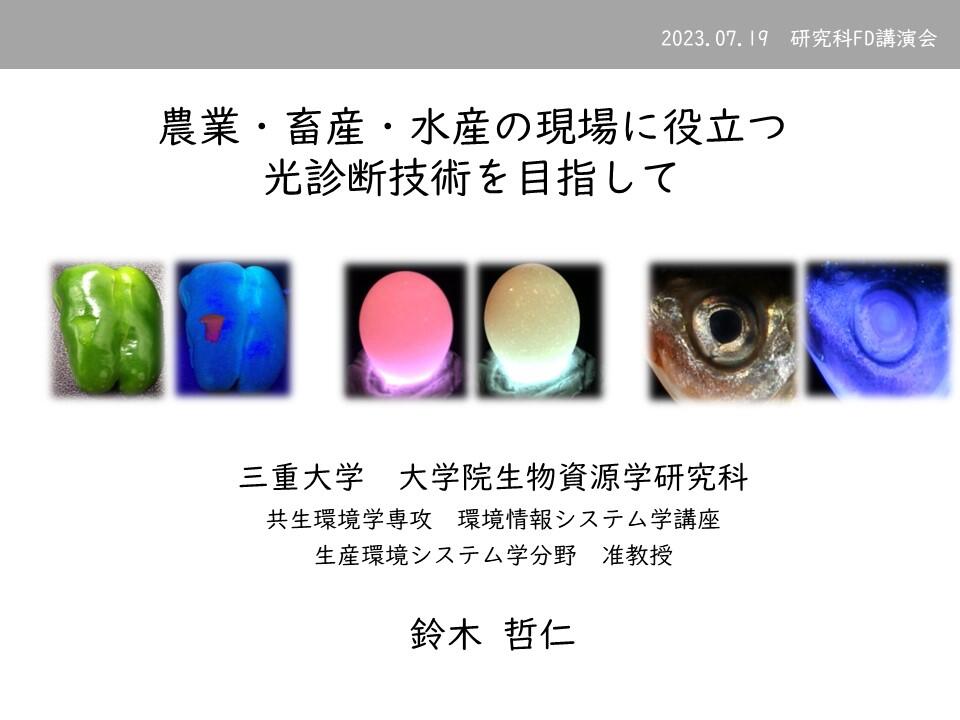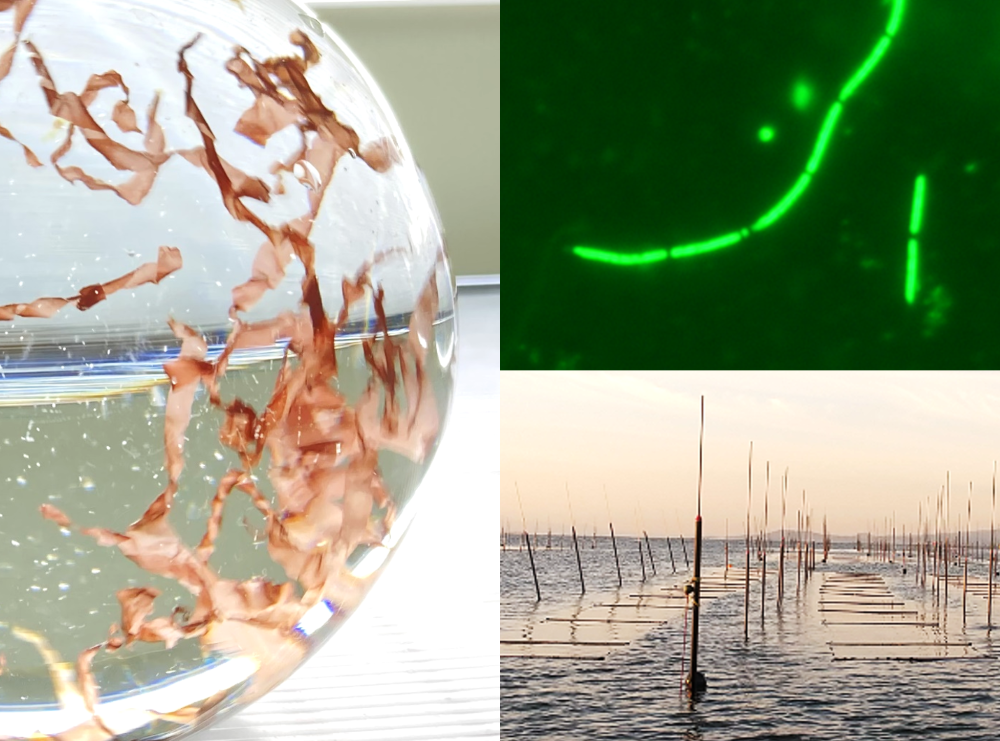Course of Bioscience and Biotechnololgy
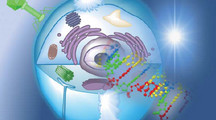
Our goal is the effective use of bioresources over a wide area that includes foods, health, drugs, lifestyle, and the environment. Using the strategy of bioscience and biotechnology, we look at the diverse systems of life phenomena, whether animal, plant, or microorganism, as well as their molecular structures and functions of the materials that these organisms produce. Our aim is to establish theories and skills for applying these results to the development of new functional molecules and foods, and environmental technologies. To that end, we carry out specialist research and education from the perspectives of chemistry, biochemistry, molecular biology, and bioengineering, with a focus on research into structures and functions of new functional materials, the genetic expression mechanisms of animals and microorganisms, bio-information sensing and processing technologies, and the development of technologies for using unutilized bioresources.
Course of Marine Life Science and Molecular Chemistry
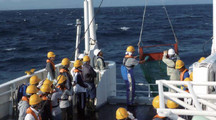
Along with providing explanations for the marine biological functions on a chemical level, we also aim to effectively utilize marine bioresources such as seafood, algae, marine microorganisms, etc., and to integrate biological information through analysis and isolation of their components. In addition, we use these as materials to create functional food resources, cosmetics, etc. through biochemical and genetic engineering techniques. In our course, we provide research and education on biochemistry, molecular biology, and the analytical techniques. Furthermore, we carry out research and education so that students can learn and master abilities to handle these techniques into practice.
Molecular and Cellular Biology
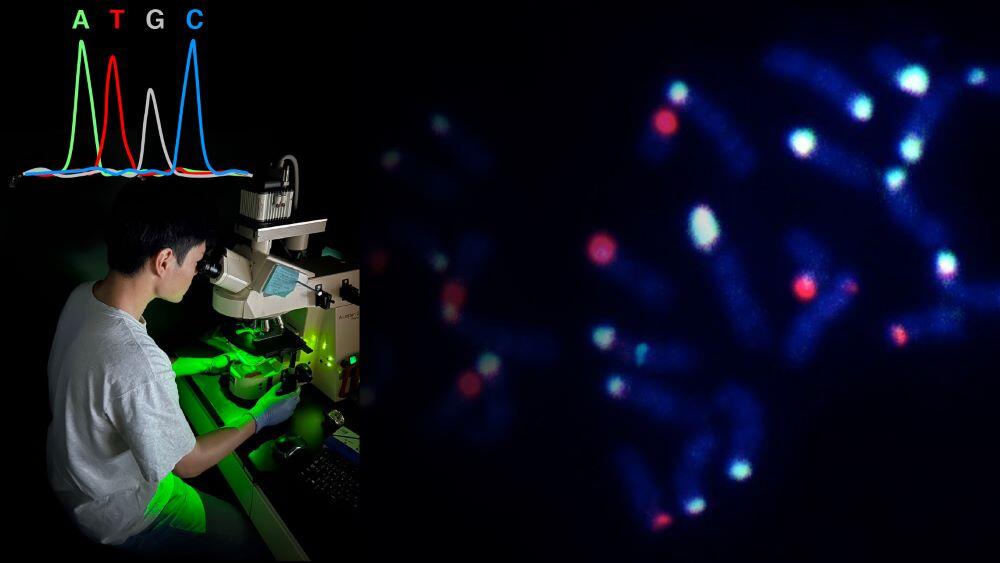
By using biochemical and molecular & cellular biological techniques, we perform fundamental researches on roles of chromatin modifications in the control mechanism of life phenomena to happen at a cell level, e.g., DNA replication, transcription, DNA damage & repair, genome instability, and cell differentiation in animal cells. On the other hand, we aim at applying knowledge provided by these to the field over many divergences of bioscience and its related research area. In addition, we also devote to a study on action and utilization of various functional ingredients (including vitamins) derived from food.
Marine Biochemistry
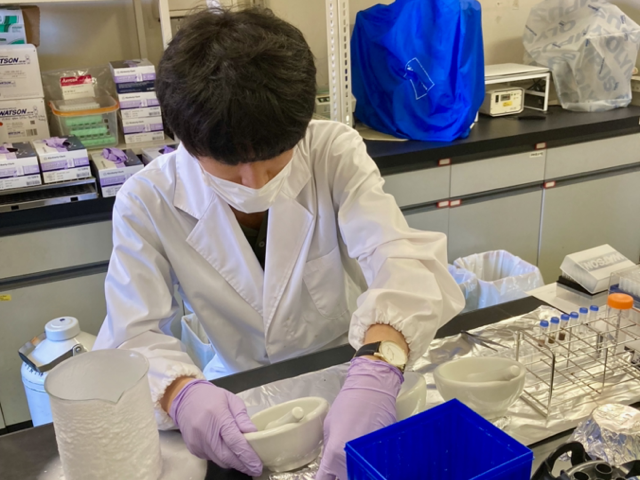
In the special environment of the sea, marine organisms involve novel constituents and engage in their interesting biological phenomena. Especially attention to macroalgae, we survey the algal compounds which contribute to the maintenance of human health by investigating their functional effectiveness and intracellular movements. In addition, we intend to elucidate the mechanisms for morphological/developmental characteristics and for response/adaptation to fluctuating environmental conditions at the molecular level. Our purposes on education and research result in obtaining the wide knowledge and experimental technique to students, and in contributing to the effective utilization and stable production of algal resources.
Molecular Bioinformatics
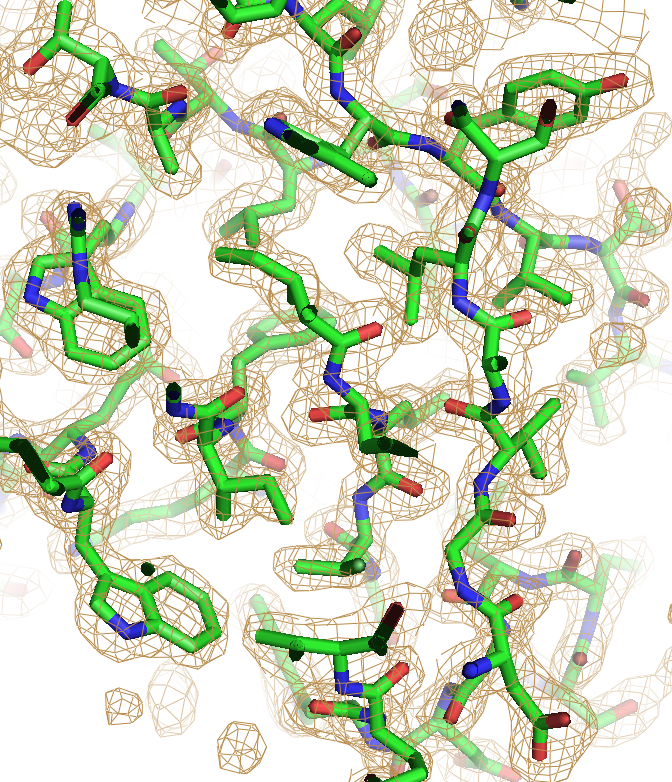
Current research projects of this laboratory are as follows: (1) genomic-scale analysis of bacterial gene and protein expression, (2) analysis of protein structure and function, (3) lignocellulosic biorefinery using Clostridium species (4) calorimetric and kinetic analysis of the stability of globular proteins, and (5) application of microbial calorimetry to the food science and the soil science.
Utilization of Aquatic Bioresources
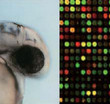
Our labratory is mainly forcussing on fish and algae that we analyze their avarable products and those who are developed by unused bioresources in the aquatic field. Moreover, we study on the theory and technologies not only with genetic bioengineering for breed improvements in fish, but also with synthetic biology on bacterial biosynthesis. Furthermore, by analyzing the interaction and relationship of molecular levels between chemical compounds and their biological effects, we aim to elucidate and educate synthetic biology and biotechnologies for mechanisms of molecular interactions from a cell level to a whole body level.
Biofunctional Chemistry
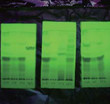
Molecular interaction and/or recognition play an important role generally in the crucial situation for biological process. Our laboratory is focusing such molecular recognition from a viewpoint of organic chemistry. The host-cell recognition of bacteriophage and epidemic penetration of medical drugs are investigated for development of new drugs and functional material. In those studies, phages, bacterial cell, and animal skin are studied using methods of decompositional manner. Application researches for developing a new method for organic synthesis of materials for drugs and exploring substances account for palatability of beverage are also our interest.
Molecular Chemistry and Aquatic Materials
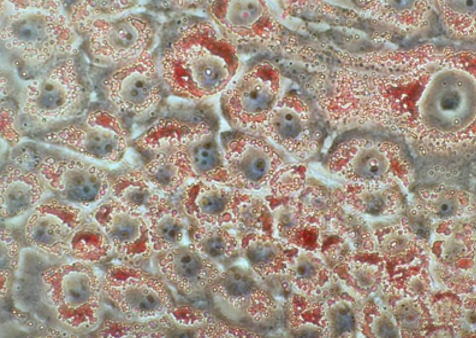
A variety of organisms have been inhabiting the hydrosphere. Our laboratory investigates functional ingredients in aquatic organisms that contribute to beauty (whitening, photo-aging, etc.) and the prevention and/or improvement of lifestyle related diseases (cancer, osteoporosis, allergy, etc.), and elucidate its mechanism based on scientific evidence. In addition, in order to expedite the development of functional cosmetics and foods, we have been engaging in the development of new evaluation system for screening of functional ingredients by using noncoding RNA and exosome secreted from cells. In this way, our laboratory educate you from the view point of cell biology, experimental animal science, and nutrition for the purpose of material development that contributed to the improvement of ''Quality of Life''.
Medicinal Chemistry
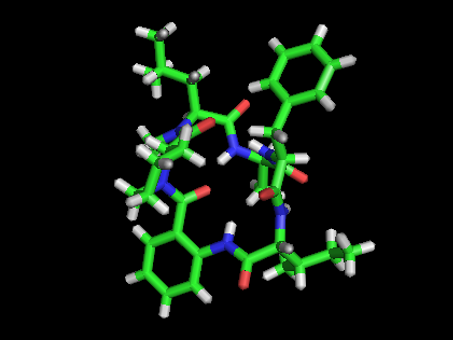
This laboratory is focusing on 3D structure of drug molecule to develop more effective drugs with few side-effects. Molecular modeling, organic synthesis, biological evaluation, and 3D structural analysis of bioactive peptides are performed to optimize its 3D structure. These experiences help students to learn organic, biological, analytical, and computational chemistries, which are necessary for drug development.
Biophysical Science
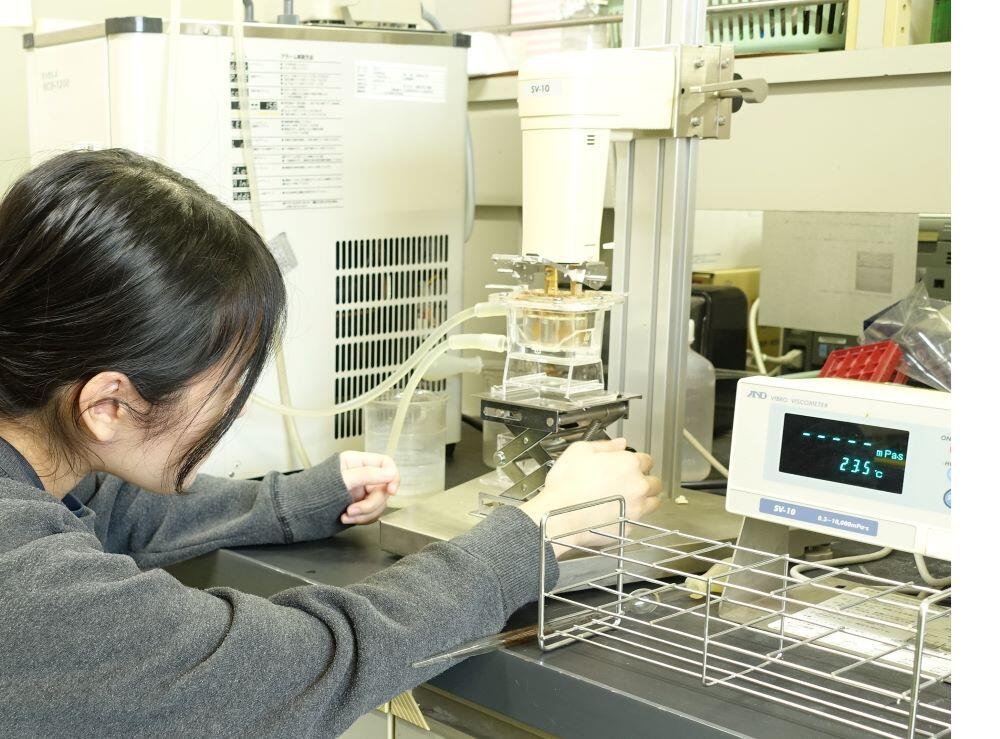
Mainly we aim to elucidate the molecular mechanism of muscle from the point of view of comparative physiology and comparative biochemistry. Moreover, we also research the preservation and processing technology of muscle based on such studies. In recent years, we have succeeded in the development of a method to maintain the transparency after mortality of the mantle muscle of oval squid. It has already been put to practical use in Mie Prefecture. Blood vessels are closely related to various illnesses. Arteriosclerosis is causes of various lifestyle-related illness: such as heart disease, cerebral infarction, and hypertension. Angiogenesis is causes an increase or growth of tumor tissue, and if we have diabetes, the wall of blood vessel become brittle. We have examined what genes or proteins are participated in smooth muscle cells on these lesions.
Bioorganic Chemistry
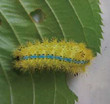
Our focus is to maintaining the life activity of human being or the other organism.We intend to clarify the chemical structure of endogenous or exogenous bioorganic materials and to make clear the mechanism of expression and regulation of various functions using its bioorganic materials. The results are applied to control the activity of human being or the other organism.
Marine Biotechnology
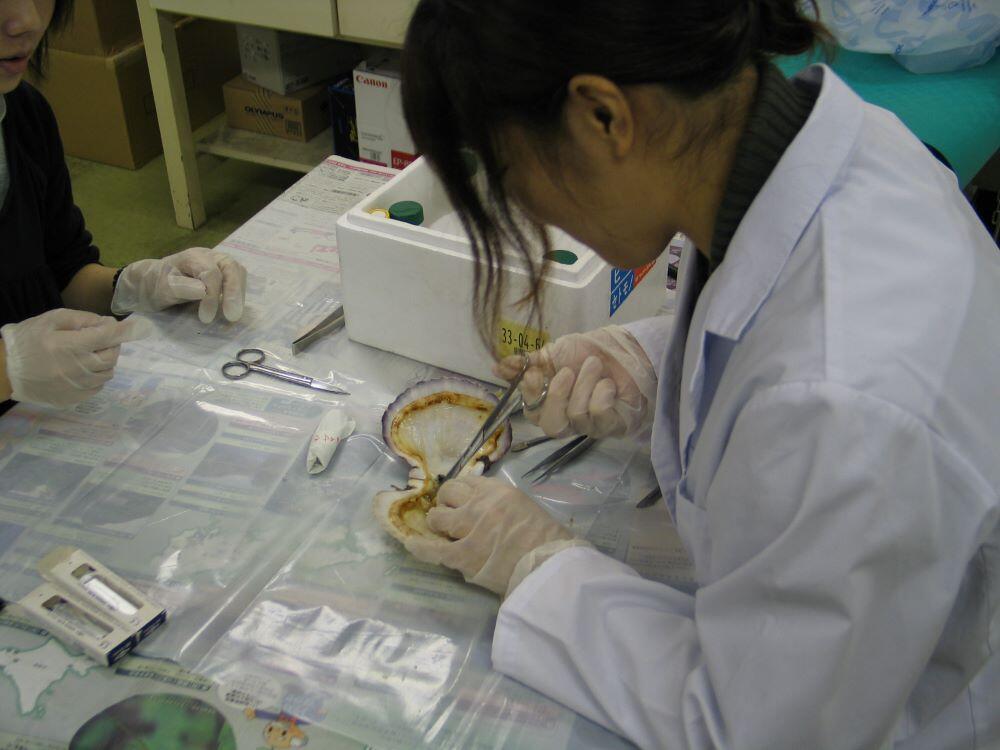
Figures and functions of aquatic organisms extremely differs from those of land-dwelling creatures. Aquatic organisms have acclimated themselves to the aquatic environment and their genes have produced various proteins that give abilities to live in the aquatic environment. Our laboratory is studying on functions of muscle proteins of aquatic creatures such as sharks that have urea in muscle and bivalves of which muscle can maintain the tension for a long period without energy consumption.
Bio-regulatory Chemistry
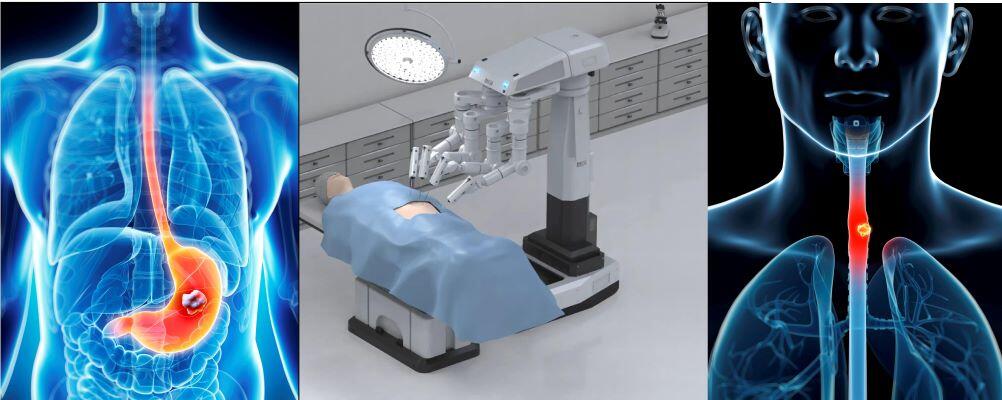
Bio-phenomenon is done by significant dynamic changes in the chemical reactions and molecular interactions. In our education and research division, we organic-chemically and bio-chemically research the regulation mechanism of molecule bio-systems as a basic study, and subsequently develop some novel diagnosis materials and medicines for life innovation and human health care as an applied study.
Marine Microbiology
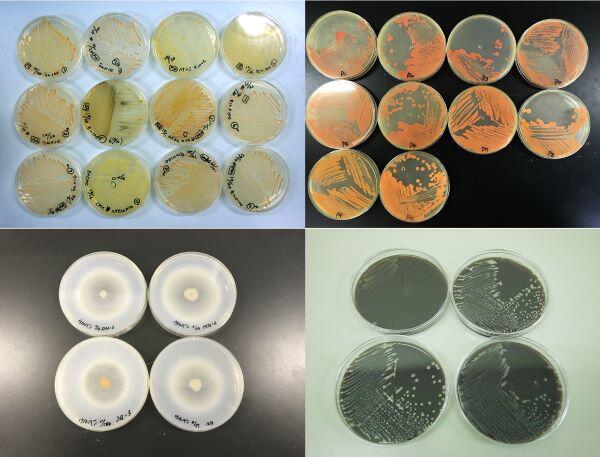
Microorganisms such as bacteria, true fungi, and unicellular algae, are one of useful marine resources. We have so far searched and isolated unique and useful microorganisms in marine environments. We have investigated biochemical, physiological, and ecological properties of these microorganisms to produce chemicals and bioenergy. In addition, it is imperative to control harmful microorganisms such as food-poisoning bacteria in food-manufacturing factories. We have also investigated the optimization of cleaning and disinfecting operations of food-processing equipment from interfacial aspects.
Bioinformation and Food Engineering
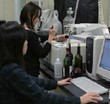
In order to take full advantage of bioinformation such as structure,shape, color, taste and functions of foods and agricultural products on food production, processing and logistics, we perform the education and researches on biochemical and food engineering by analyzing bioinformation at molecular, cellular and individual levels. We conduct researches and professional education relating to bioprocesses in the fields of food production and agricultural sector, and apply multiband optical sensing methods to getting quantitative and kinetic grasps of various kinds of bioinformation which appears due to the metabolism.
Quality in Marine Products
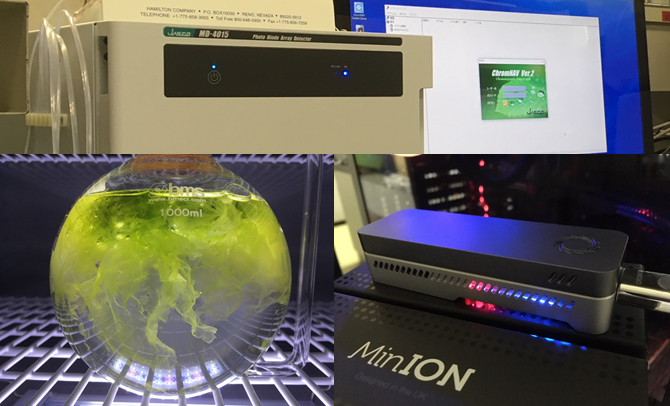
Our laboratory aims to improve understanding of marine product constituents such as enzymes, blood components, glycoproteins and oligosaccharides that have effects on its quality and safety. Our specific interests are reactions of these components that occur in marine products during storage and processing, and how they could be controlled for quality improvement. Recent research topics are as follows: (1) Comparative pharmacology of fish drugs in cultured fish. (2) Study on glycoproteins of fish red blood cell membranes. (3) Exploring novel biocatalysts from marine bioresources for high value-added chemicals production and developing their application for marine products.
Food Chemistry
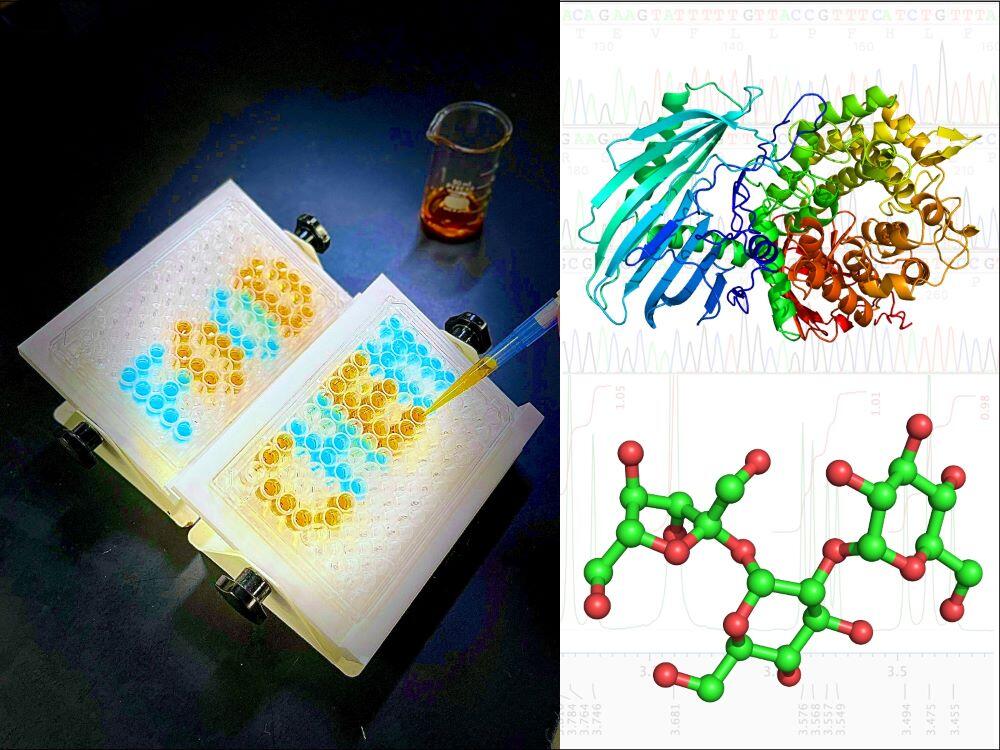
The laboratory of Food Chemistry studies structure, properties, and analytical methods of food compounds and food-related enzymes. Also, we work on the development of technologies to produce novel or valuable food compounds using enzymes or microorganisms, and the effective use of regional resources. The main subject of the laboratory is carbohydrates such as polysaccharides and oligosaccharides and their related enzymes.
Marine Food Chemistry
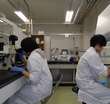
In the laboratory of marine food chemistry, it is working on the following research themes: 1. Study on the search of functional ingredients from aquatic animals and plants 2. Study on the metabolome analysis for aquatic animals and plants using LC-MS and GC-MS 3. Analysis on the chemical structures and physiological properties of brown algal phlorotannins 4. Study on analysis and utilization of seaweed polysaccharides 5. Study on the development of culture methods of macroalgae
Applied Microbial Genetics
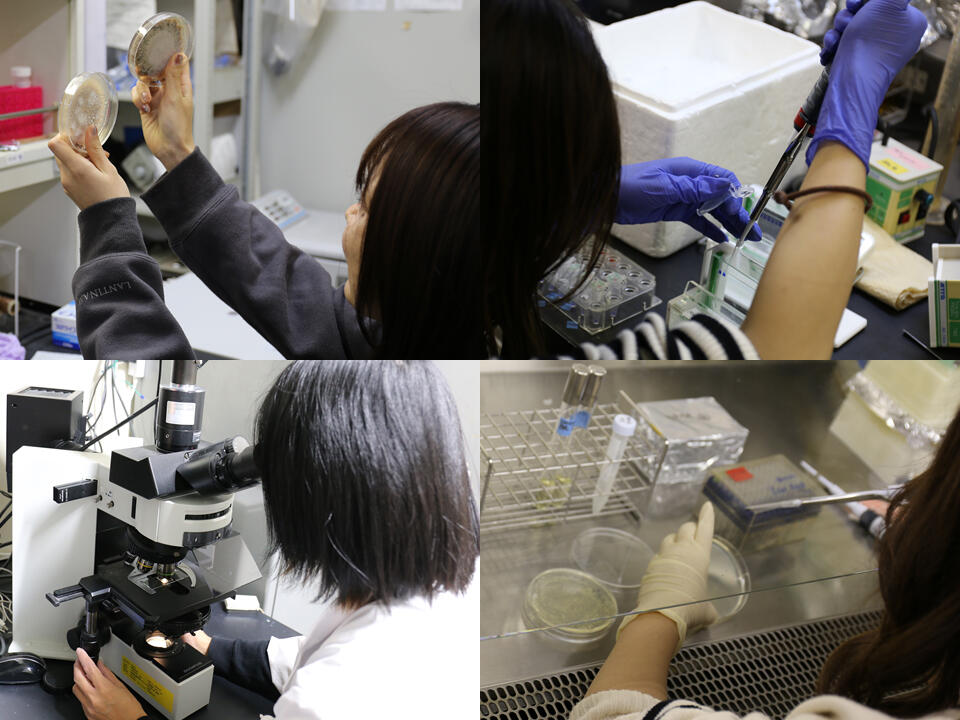
Genetic engineering is a technology that has the potential to produce more useful microorganisms for bio-industry. One of the targets of our research is to molecular breed a bacterium that is able to decompose a complex plant cell wall fiber completely and produce biofuels such as hydrogen gas. However, decomposition of plant cell wall requires many cellulolytic enzymes. Therefore, engineering of many genes are required for breeding super bacterium that can efficiently convert biomass to bioenergy. We are trying to develop a new genetic engineering technology to breed a super microorganism.
Nutritional Chemistry
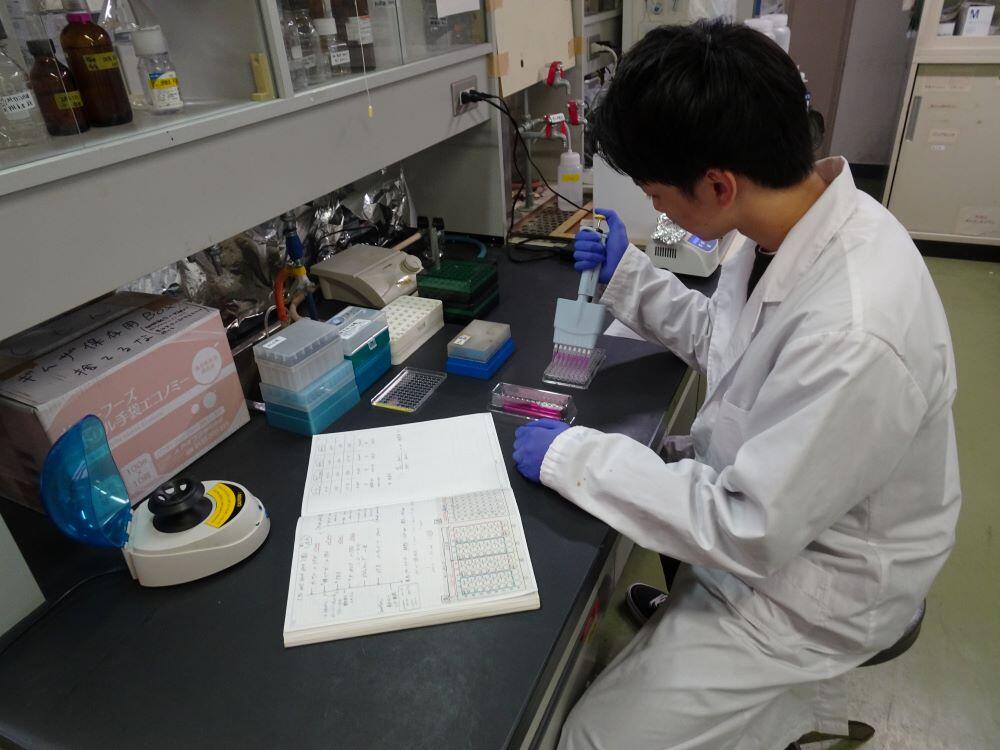
We study the response of the living body for food at levels of individual, tissue, cell, molecule and gene. Especially, we purify some functional components from unutilized resources obtained from the animals and plants and the microorganisms and analyze their structures and clarify the action mechanisms of those components using the techniques of animal experiment and the cell culture to make use of them for health promotion and the prevention and the improvement of the lifestyle-related disease. Our main research projects are study on functionality of the soybean fermented food, effect of food components for animal models for eye diseases, modulation of bone metabolism by food components, the study about the anti-allergy components from food using mouse models of asthma, and the study about the functions of the nucleolus protein.
Fermentation Biology
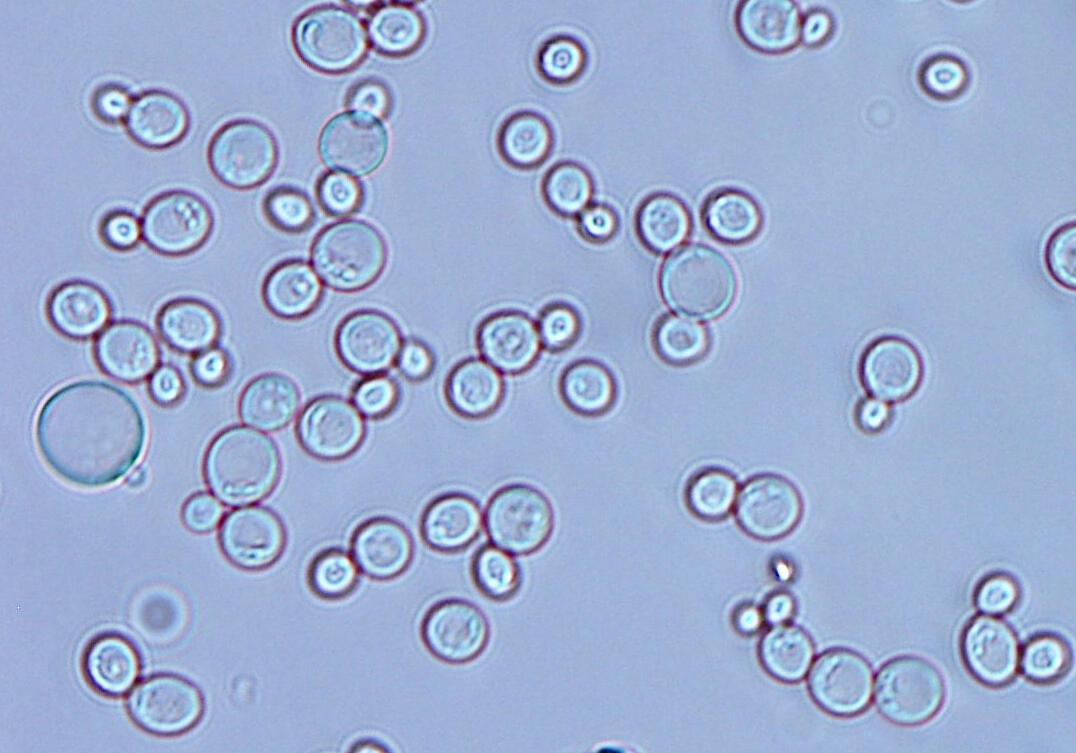
Alcohol beverages, traditional foods, such as natto and tsukemono, and yogurts are produced with microbial fermentation. Our laboratory is interested in microorganisms involved in fermentations for food productions and chemicals. We educate on microbiology, microbial genetics, metabolism, molecular biology and recombinant DNA technology. We strive to give the student the opportunity to develop the skills and fundamental knowledge to become an independent investigator in academia or industry.

